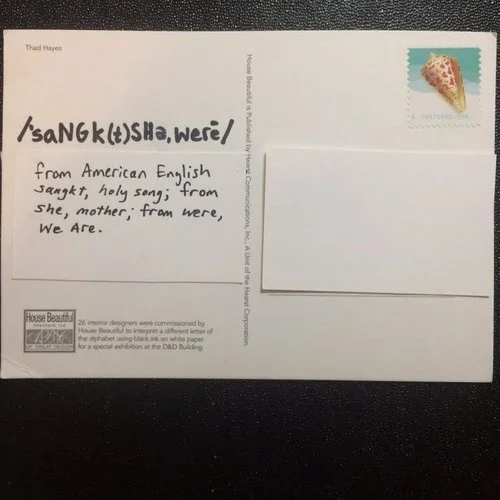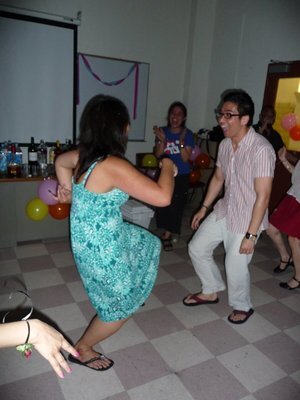This “literary address” is part of a series of 20 addresses commissioned by the Smithsonian Asian Pacific American Center and the Association for Asian American Studies. Penned by leading Asian American (and in this case, Pacific Islander) poets, writers, playwrights, graphic novelists, and literary scholars, the addresses assess the state and future of Asian American literature and offer a wide-spanning re-imagination of its place and consequence.
This is not an essay.
This is a
botanic.
A joyride.

Dear Sarah,
It is the second snowfall this winter. A year ago I believe it hadn’t snowed yet in mid-December, but I remember feeling colder. I feel like I’m disappearing from this country where I became a man....
“How do we see with better eyes?”
Let's say you have never heard the word "literature,"
what do you think it means? Create a definition.
Lit • era • ture: light that shines on a time, circumstance and history, structured into narrative.
Li-tera-ture: adventure under Maori law with dominion over silvery mineral landscapes.
Lite • rat • ure: nature and lure of the ubiquitous, enduring species roaming the floating underworld.
Liter • at • ure: pure measurement of human urges and desires.
Li • ter • ature: Chinese distance into the future.
Lit • eratu • re: illuminate the human mistakes that recur, repeat, endure.
Li • te • ra • tu • re: regards to your lilt and tea and sun and unique well-being.
Does poetry meditate?
Burrow in the deep plum of the body?
Dear Joseph,
I love that you said poetry was
a warm house.
A patio
(friendly lights)
mind-solace,
body-love.
We were both writing our first books. We were emerging artists. People said you want to start a company for emerging artists? But, you are emerging. Yes, we said. Exactly. We xeroxed 300 flyers for the first Kundiman Retreat in 2004. We gave them out to anyone that would look sideways. We were breakneck speed. Our one publicity–– a gladiator website. That winked our information.
Cross over from a homescape to another. No comeuppance nor exile, but necessity becoming choice. To bridge. The line that extends, even meanders, wind-howled, lapped by water, carnations-strewn. Planks, sands, mud, clouds, roads.
Let's say you have never heard the word "literature,"
what do you think it means? Create a definition.
Garden of bronze and sugar where histories gather in hushed conversation.
The reservoir of earth rises in at noontide.
Q: What does it mean to rise to the challenge of your time?
A. Sometimes you must become that which you need.
What event in Asian American history
has most shaped your writing?
Having immigrated as an adolescent in California, I first became aware of a larger Filipino history in the United States when I visited Agbayani Village, a retirement home in Delano built for migrant workers respectfully called the manongs, the first major wave of Filipino immigrants who came in the 1920s and 30s. In this new land, the manongs faced and endured hardships, discrimination, loneliness and violence. But they fought, persevered and were integral in organizing efforts and in creating labor unions, which improved working conditions. The farm workers unions became part of the larger Civil Rights movement, bringing on sweeping social change. The first poem I ever published—in Bamboo Ridge, an independent literary journal in Hawaii, which was also selected by Adrienne Rich for The Best American Poetry 1996—is about the manongs. Not only was I touched and humbled meeting a few of them, but I learned and intimated the dark underbelly of my new American home. This was wisdom I needed to navigate its waters. This resistance to authority or the norm, and insistence in their visibility are reasons why I write. Writing for me is a tool to illuminate, to bring to light those in the shadows. To include my people and our stories in the narrative of America.

I did not know much about Asian American history growing up. It was not deemed a priority in my education and I did not know that I needed to value this. I found out about Li Young Lee in a Cosmo magazine. I found his book Rose in the the school library.
I opened the leaves of the book / and wept.
It was so easy to love Kundiman. A time to take ourselves seriously as artists, to stand over cauldrons of our making, eat dinners that were conversations and to go long into the night.
Barbecue Scepters
2 lb pork shoulder, sliced in inch cubes
Bamboo skewers
For marinade:
3 1/2 tsp minced garlic
1/2 cup soy sauce
1/4 cup lemon juice
1/2 cup tomato paste
1 can ginger ale
1/2 cup brown sugar
1/2 tsp red pepper flakes
1 tsp salt
1 tsp pepper
Mix the marinade ingredients in a large bowl. Reserve ½ cup of the marinade. Pour the rest of the marinade over the pork and refrigerate overnight.
Skewer the pork pieces on the bamboo sticks. Heat grill to medium high. Brush reserved marinade onto skewers and grill around 8 - 10 minutes on each side until slightly charred.
What one figure you would invite to a
Literary Ancestor dinner party?
José Garcia Villa
I just think he would be fun at a party, the witty, gossipy Greenwich Village uncle who has a tendency to drink too much martinis. When reading Villa’s poems I’m curious as to how his innovative mind works. And the stories he would tell, being a trailblazer in the modernist literary scene, championed by Marianne Moore and e.e. cummings. We’d indulge in aspic with chicken and eggs, caviar, and a whole roasted suckling pig. Then, along with other Filipino American poets, we’d reenact this famous group photo from Sir Osbert and Dame Edith Sitwell’s party at Gotham Book Mart in 1948:
.

Theresa Hak Kyung Cha
for short rib adobo, bo ssam, ginger garlic rice, red cabbage miso salad, flash pickled sesame cucumbers. Ginger poached pears in jasmine tea. Champagne throughout.

I feel like a paper boat sometimes...
We just knew that we wanted to meet everyone. To see everyone. We whispered to each other across the Whispering Wall.
ancestors love BUFFETS
How does your poetics manifest bodily?
I’m a person prone to rituals. In the mornings, for instance, I’m slow unfolding like the sunrise, the sky lightening. I turn off the alarm, I drift, get up, make the bed, urinate, drink a glass of water, put the kettle on for tea, settle onto the couch with the local news on … This takes about 45 minutes, before I jump into the shower, get dressed, head out-of-doors to tackle my American day in dizzying wakefulness. The rituals, as patterns, manifest in my writing, too, and the slow drip into creation. I’m not fast nor a scheduled writer, time has no grasp on me. But I steep and simmer. I listen to my body and take my waking slow. I dream yet in tune with daily life—with social, political, environmental, transnational, ethical issues. I attempt to write about things that are larger than me, smaller than me, those marginalized like me. I see the world through the lens and filter of my Asian American queer immigrant body.
Always resistance. Wanting to watch The Bachelor and eat cheese from a plastic bag. Green id. At the same time, just commuting. A reliable car with velveteen heat. Hands steady on the wheel. Maps in my handwriting. Micro black ink.
When I think of the Kundiman Retreat from Charlottesville to New York City, I see in collages, in tableaus. The nervous arrivals at check-ins. The first circle, opening. The basement computer lab all through the night brimming with keyboard chatter, literary pondering, deep swell of laughter.
Tableau: How many Asian American poets can you fit in a dorm room with a guitar, dancing and singing along?"
Tableau: Schemes & dreams in midsummer. Snow cone Haiku Overdrive. Karaoke with Myung-Mi. All-You-Can-Eat Chinese buffet with Lawson. Marilyn dancing like gin fizz. UNLIMITED DORM PIZZA.
Tableau: The Lotus Eaters. Sandwich-making contest. The glorious work horse of the fictionists. Boxes of Kleenex. The final circle, opening.
What is legacy? What is your legacy?
What do you imagine is the legacy of Kundiman?
I’m a writer and an essentially happy, fulfilled person, who would be satisfied to continue on writing, reading, eating, and living at my tropical pace in this metropolis I love with those whom I love. As for Kundiman, however, the nonprofit I cofounded that nurtures writers and readers of Asian American literature, I envision vital, wide-ranging, long-standing impact. I predict the organization will be cited in history books as a major catalyst in changing the American literary landscape. Kundiman has built a strong community dedicated to the pursuit of Asian American letters. Through our writing retreats, pedagogy, workshops, publications (books, journals, online and print), oral history projects, readings and other literary events, Kundiman has increased the visibility of Asian Americans. By telling our stories effectively and eloquently through literature, we are enacting social change. Kundiman is a beacon of how revolutionary a creative community can be.
A wool and warm, scratchy blanket to share. We reject the capitalist / scarcity mentality that often comes with the literary world. It's an economy of merit, where we divide people into winners or losers. People that are more successful or less successful. This is opposed to an economy of grace. As artists, can we work and live in grace? Can we lead our communities in grace? Something has to give in, to give. Let it be us. Embrace bounty and we will create it.
How can we create deep time vision? Not just what would be good for me.
But, what would be good for the next seven generations?
What will they need to hear? Can we help to usher them into fulfillment?






